Anti-Isis foreign legion: Ex-skinheads and angry white men swell ranks of Christian militia fighting Islamic State
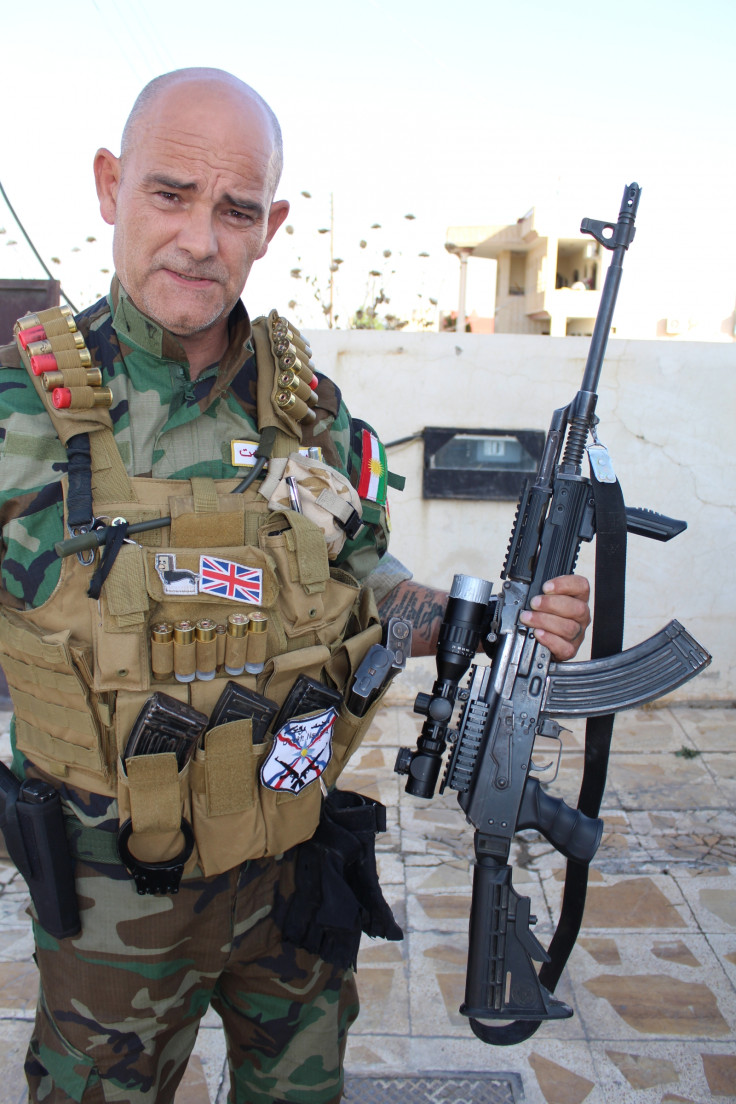
In a small village somewhere on the lush plains of northern Iraq, a muscular 46-year-old Scottish man is getting restless.
James is one of a small group of men in army fatigues listening to the crackled chatter coming out of a handheld radio.
The men can hear militants from the Islamic State in Iraq and Syria (ISIS) relay in simple code updates from the stagnant front near the Assyrian town of Al Qosh.
'Lets go and f*****g start something.'
Kurdish militias known as the Peshmerga have been holding this sector of the 1,000km-long front line that separates IS from the autonomous Kurdish region in Iraq for the best part of a year.
With the oppressive heat adding to the inertia that sets in during Ramadan, the Peshmerga seem content with holding the line, but it is all getting a bit much for James.
"See, there is nothing," he bellows. "Well, lets go and f*****g start something!"
James, who declines to give his full name for fear of attacks on his family back home, is one of three western volunteers that are currently with Dwekh Nawsha, a small militia defending the Assyrian Christian minority living in Iraq's northern Nineveh province.
Created in response to IS's conquest of many of Nineveh's Christian towns and villages last year, Dwekh Nawsha has attracted a steady trickle of Westerners coming to Iraq to fight the terror group.
While not part of the Peshmerga, the official armed forces of the Kurdish Regional Government (KRG), the Christian militiamen do co-ordinate and sometimes fight alongside the Kurds, who are more reluctant to add foreign volunteers to their ranks.
"You can't just join the Peshmerga, Dwekh is the only way to really get a crack at it," says Louis 'Tex' Park, a 25-year-old former US Marine and Afghanistan veteran, who joined the militia five months ago.
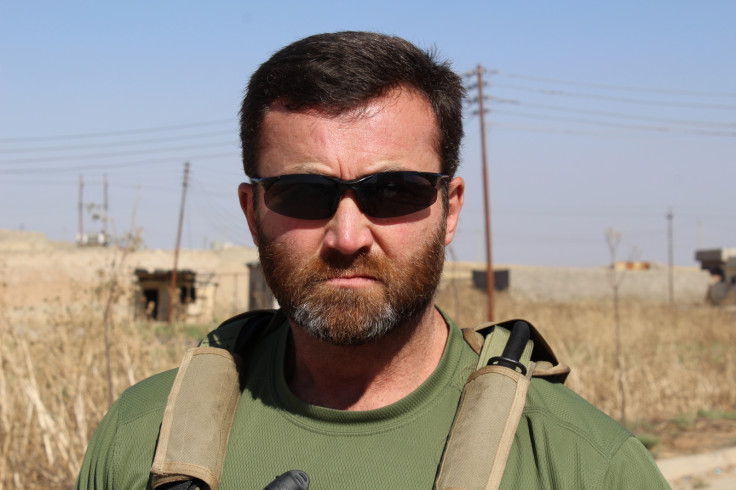
A handful of foreigners fight with the Kurdish militia in the eastern part of the autonomous region, where the Kurds took control of the oil-rich city of Kirkuk. But the Peshmerga there fall largely under the control of the Patriotic Union of Kurdistan (PUK), the opposition party that holds sway in the east. The ruling Kurdistan Democratic Party (KDP), which predominates in Nineveh, is less enthusiastic, says Park. The official KRG line is also lukewarm at best.
"The Peshmerga are fighting for the same values and principles as the free world and anyone who wants to defend the same values may be considered. But we are not short of men, we are short of weapons, especially heavy and modern weaponry," says Safeen Dizayee, a government spokesman.
Park says that he choose Nineveh over Kirkuk because of the higher chance of seeing combat in this sector. Bakufa, the village where Dwekh act as a back-up to the Kurdish units stationed there, is only a dozen kilometres from Mosul, the largest city to have fallen to IS. The KRG has in the past pledged to help with the liberation of Mosul, an operation that was put on the backburner when IS defeated Iraq's security forces at Ramadi in May.
I missed the combat from Afghanistan. I saw a lot of combat out there and I really missed it. I had difficulties adjusting to the fact I was going to be a civilian again.
But with the nearby city of Sinjar still disputed between IS and the Kurds, regular clashes are not far away, and Park is desperate to get involved in the fighting.
"I'm always waiting for them to attack us force on force, or [for us] to attack and take the town," he says, referring to IS-held Batnaya a couple of kilometres across the rolling fields towards Mosul.
Park returned home to Houston, Texas, for only a month before heading to Iraq.
"I missed the combat from Afghanistan. I saw a lot of combat out there and I really missed it. I had difficulties adjusting to the fact I was going to be a civilian again," he says.
In a previous interview, Park admitted to suffering from post traumatic stress syndrome when he left Afghanistan and the Marines in December, a condition that ended any hope of him seeing combat with the US military.
Instead, he is trying to make himself useful in Bakufa. He has devised training programmes for the sixty-odd Dwekh fighters and the nearby Peshmerga. He listens in on IS radio with his Iraqi comrades, and he spends hours scanning the horizon for mortar flashes, trying to locate the enemy fire positions to be able to knock them out.
His efforts serve one goal: to get closer to the action. In his first two months in the country, Park says his time was taken up entirely with "politics", meeting with local officials and Peshmerga commanders, whom the veteran Marine hoped to convince of his worth on the battlefield.
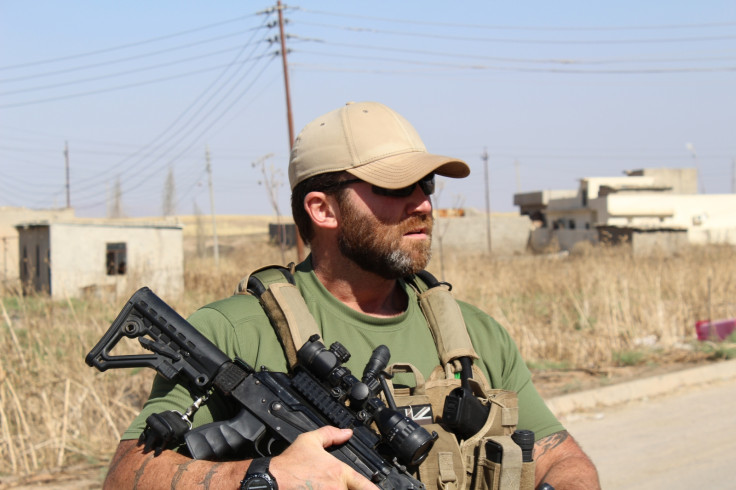
The Peshmerga's fragmented and decentralised command structure lends itself to such lobbying, and Park eventually got his first taste of combat in Iraq. He has been to Sinjar twice since May, helping kill enemy snipers and directing mortar fire. The commander of a specialised Kurdish unit is Park's best hope of getting to the front line at Bakufa.
Like Park, James was also frustrated with the red tape keeping them from the trenches. Things improved in recent weeks, he says, when he was able to take part in several night-time fire-fights.
It is not nearly enough for James, who served in the British army for seven years and fought in Northern Ireland before going into private security.
Daesh is growing in Great Britain. Unfortunately, in my country, I can't do anything, I can't say anything, or I will go to prison.
He has spent thousands of dollars on equipment and to come to Iraq, and he is seeking some return on investment. He too wants to move on Batnaya, and "if the politics come into it, sorry, we'll just f**k them off and go and do it."
His disdain for politics is not limited to the KRG's inhibitions about letting him fight IS in Iraq. Politics is also at fault for doing nothing to combat the growing threat of the IS at home, he thinks.
"Daesh [an Arabic acronym for IS] is growing in Great Britain. Unfortunately, in my country, I can't do anything, I can't say anything, or I will go to prison. My only other option to do something about it is to come here, where I can get a weapon, where I can fight Daesh," he says.
An admirer of Britain First, a far-right nationalist party that rails against the perceived 'Islamisation' of the country, James believes that Muslim extremism is spread by "out-breeding" Britain's white population.
"Britain in a few years will be a Muslim country, a complete Muslim country," he says.
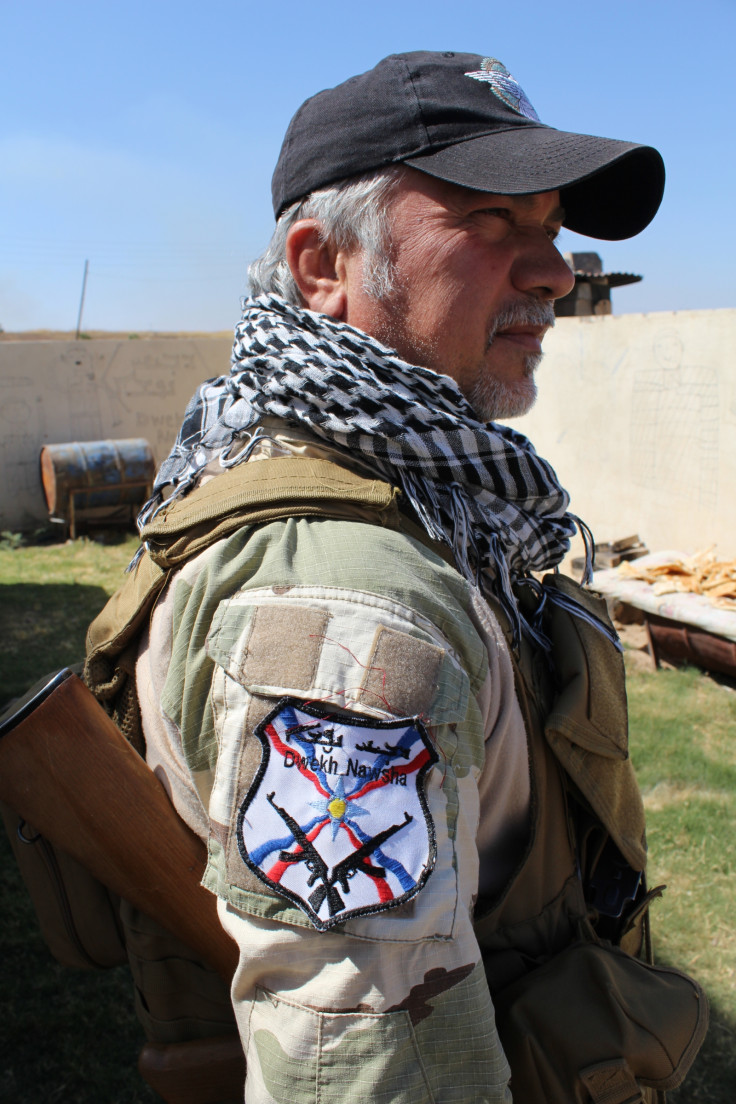
His urgency is not only informed by his beliefs. Approaching 50 and divorced, he was stuck in a rut at home and looking for purpose in life.
"This is my last chance to do anything good, because I am getting older," he says.
These are words that 52-year-old Jim Atherton from the English town of Washington can relate to. A former skinhead and white van driver, Atherton spent over 20 years delivering cargo across Europe.
"To be honest, I was looking for something else," says the father-of-three, wearing combat trousers and Doc Martin boots. "I've got a colourful history, and I'm getting on in life. I want to say I've done something."
Atherton refuses elaborate on his colourful past, but it prevented him from joining the army in spite of several attempts.
Dog lover
Son of a soldier and born in an army barrack, Atherton was surprised at the lack of military drill and discipline at Dwekh Nawsha when he arrived three months ago. Due to a rotation system, half of the group are on leave at all times, and only about ten men were at the building occupied by the militia in deserted Bakufa when visited by IBTimes UK.
Atherton says he has seen combat four times since his arrival, and spends much of his time reading and on Facebook. The proud owner of four dachshunds, he is a member of various online forums for dog lovers.
His dogs are now with his ex-wife and a friend, but he keeps his fellow dachshund aficionados updated on his time in Iraq, eliciting the odd donation whenever an "old lady sends over a few quid".
Most of the donations he raises from the publicity from battling IS are channelled to a dachshund charity, he says, revealing his soft side.
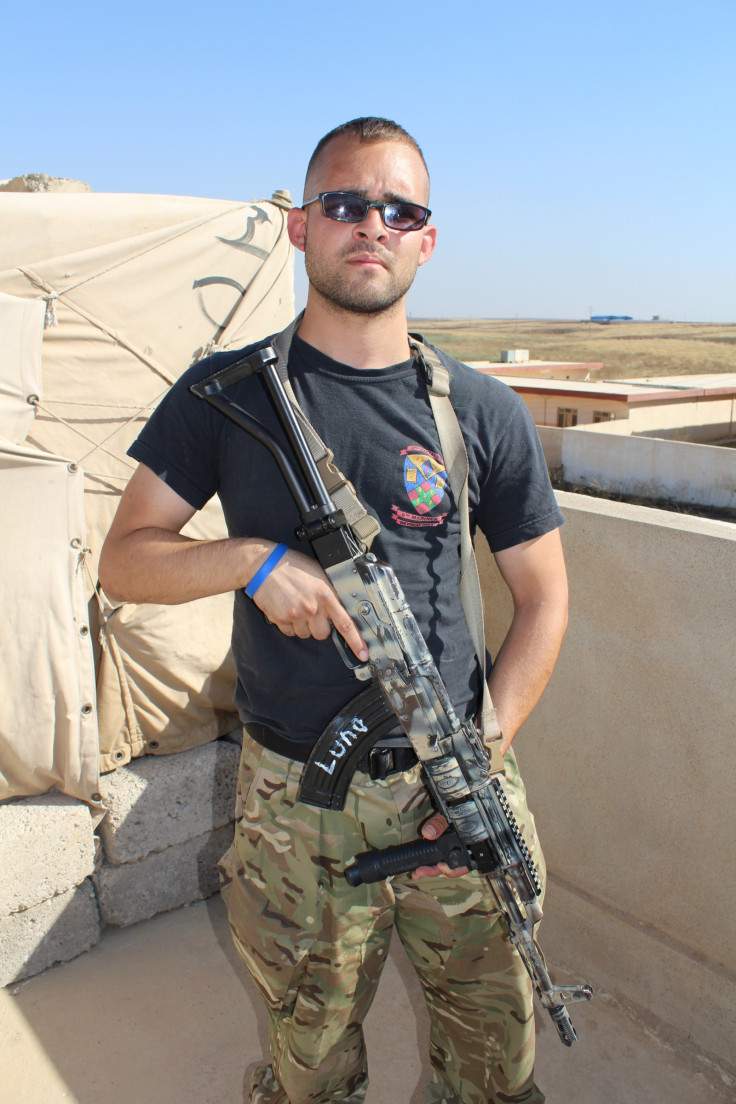
The volunteers receive no pay from Dawkh Nawsha, which translates from Syriac into "one who sacrifices", and rely on their own money even to buy ammunition. Unlike Atherton, who has budgeted to be fighting for up to two years, Park's savings have been largely exhausted by coming to Iraq, and the Texan is more serious about raising funds online.
His Facebook posts – largely depicting him and his fellow fighters posing with their weapons – often contain his Paypal details, and he hopes to bring in donations for him and the group.
Dwekh Nawsha and the Westerners who started joining the group soon after its inception have also become adept at using social media to recruit from the small pool of foreigners looking to fight IS.
Park says he was contacted by a militia member, who convinced him to ditch plans to join the Kurdish militia in Syria. The amount of foreign fighters with Dwekh fluctuates, many having left Iraq for extended breaks or for good.
Media strategy
The media also rank highly in the group's awareness campaign. Sargon Daniel, one of the Assyrian militiamen that doubles up as a translator during press interviews, told IBTimes UK that he has cancelled his rotation and will be at the base for 40 days straight to accommodate press visits.
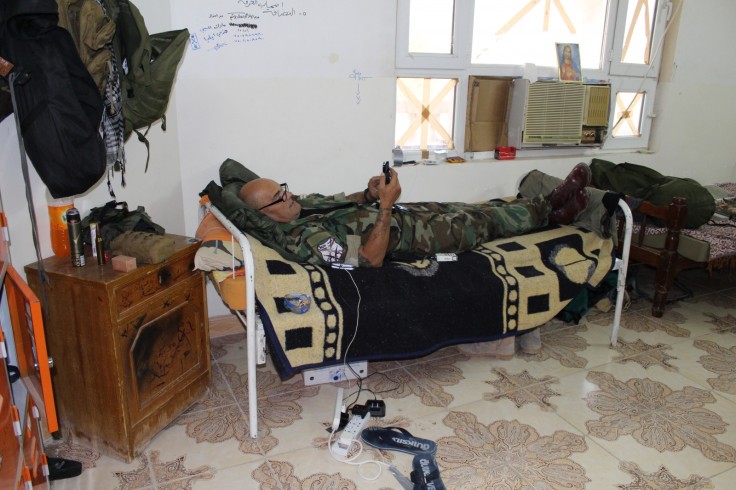
With its adept use of the media, the tiny Christian group has learned a valuable lesson from its mighty enemy on the other side of the trench. Compared with IS, whose online recruitment efforts and propaganda have convinced thousands of foreign fighters to join its ranks, Dwekh's efforts are paltry.
But in spite of a very different cause, the foreigners facing off on the plains of Nineveh have a few things in common: On both sides, men are searching for a purpose in life. They hold some suspect views, and they are looking to escape their problems at home.
© Copyright IBTimes 2025. All rights reserved.






















